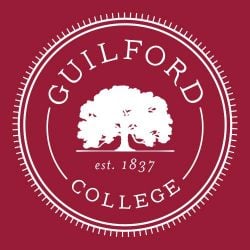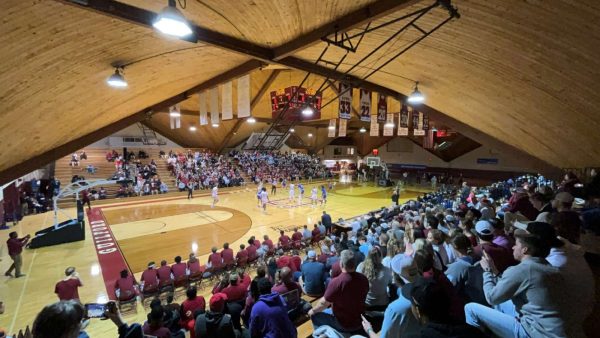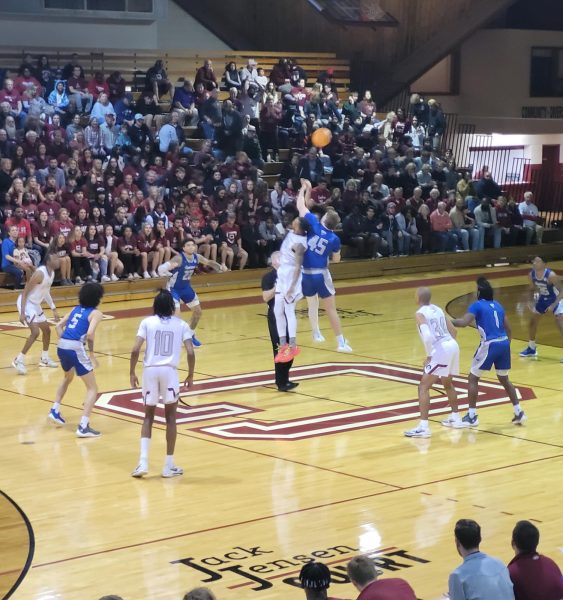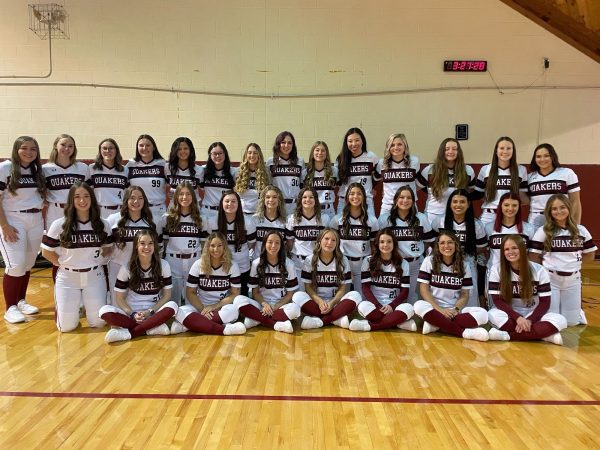The secret to Guilford’s athletic recruitment

Guilford College is a Division III liberal arts college, and because of National Collegiate Athletic Association regulations, they cannot offer athletic scholarships.
Since all teams within Division III parameters abide by this rule, it does not affect competition between teams, but it can have an impact on how athletes are attracted to their school’s sports teams. Thus, coaches take a different approach when building a cohesive team for their sport.
Head basketball coach Tom Palombo emphasizes the relationship between his team’s values and Guilford’s core values when he is recruiting. His goal is to assist players outside their basketball skills, and into developing proper character traits as men and women.
“We have developed our basketball program into one that is predicated on character,” Palombo said. “Our core values align with those of the College. Our program lives these ideals, (it does) not just talk about them. What makes us unique are the quality people that work with our athletes.”
Former Guilford College catcher and head baseball coach Nick Black ‘02 believes that Guilford College has a distinct experience that can affect everyone on campus. When recruiting, he approves of the restriction on athletic scholarship money because it pulls away from the experiences a student will come into contact with at Guilford. Black says that the campus helps grow personality and a professional respect for others.
“The major piece is the relationships that students are able to develop with their professors,” Black said. “Speaking from my own experience, I think Guilford provided me an environment to grow a lot personally and to become much more accepting.”
Coach Black says that recruitment would be easier with paid recruiters on campus. He says that Guilford’s campus is a beautiful place to play sports while also learning fundamental knowledge to progress into the working world. However, he understands that sometimes student athletes turn down the opportunity to go to Guilford College due to not having an athletic scholarship.
“Inevitably, we will always lose a kid or two that has to have the baseball scholarship,” Black said.
“But we try to get recruits to understand that money is money, and at the end of the day, it’s more important to look at the bottom line than how it is allocated. As long as we are doing our job and recruiting the highest caliber player, academically and athletically, then we should expect to be competitive.”
Head football coach Chris Rusiewicz is another advocate for not allowing athletic scholarships to intervene with his recruiting. He says he would rather offer no scholarships than offer part of a scholarship to a student.
“It’s either all or nothing,” Rusiewicz said. “If we can’t offer everything, then I’d rather offer nothing. “All we can do is recruit. And be admission counselors to sell the institution as well as its football program.”
Guilford College is a small college that has many sports for student athletes. NCAA’s Division III ruling on athletic scholarships may hinder some colleges in recruiting; but Guilford coaches know what to talk about when trying to recruit for their teams, academics.








